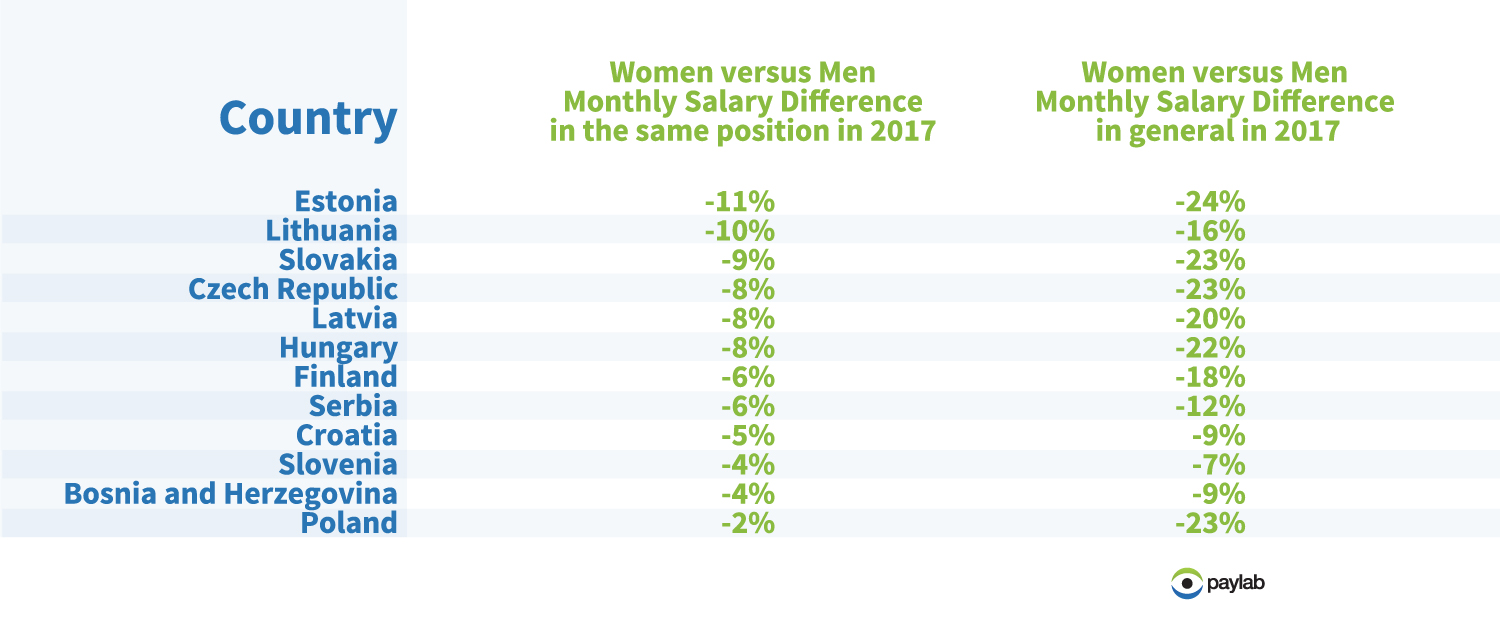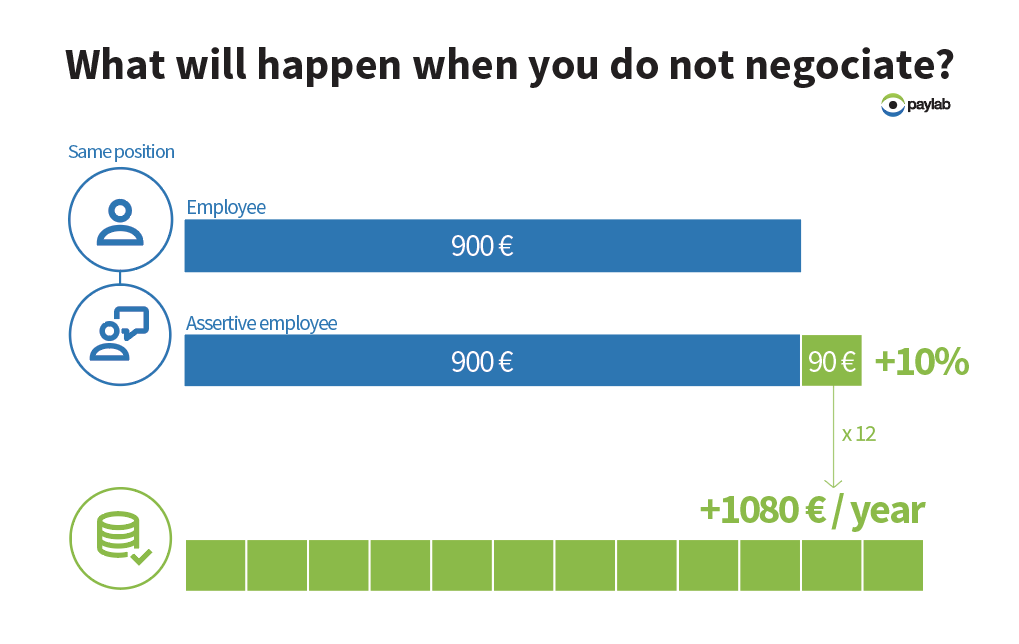Women in the CEE Region Earn 7% Less Than Men in the Same Position
6 March 2017

The pay gap between men and women endures and is a pressing issue almost worldwide. A comparison of salaries at the position level provides a relevant insight into fair financial compensation. Based on an analysis conducted by the international Paylab.com portal, women earn 2 to 11% less on average than men in the same positions in individual CEE countries.
These differences could be overcome in practice by women being more assertive in initiating conversations about their salaries in their current jobs and by negotiating salaries at the going market rate every time women find themselves looking for a new job. Averaging the monthly incomes of men and women in all CEE countries, we find that the differences are much more distinct when compared to job-based differences. Women in general earn 9 to 24% less than men (see table below). This is largely attributable to the fact that women account for many more jobs in sectors and positions where they earn less overall. Women often have a career-break, and are under-represented in executive management positions compared to their male counterparts.

Among Central and Eastern European countries, the greatest pay disproportion for women compared to men was in Estonia (24%), and in all the Visegrad 4 countries (Czech Republic, Hungary, Poland and Slovakia). The Balkans have the lowest overall salary differences between men and women. These differences are persistent and show no signs of decline in most countries. This is largely related to the composition and orientation of their economies, and sought-after jobs on the market in which both genders are represented in different proportions. It can be said that the Balkans are more equitable when it comes to remuneration.
A comparison of salaries between men and women working in the same position is much more relevant in terms of pay fairness in terms of gender. Paylab analysed the current situation in all monitored countries and found that women make 2 to 11 per cent less than men on average. The pay gap is the smallest in administrative positions.
Greater assertiveness and awareness among women within salary negotiations would go a long way towards narrowing the gap. Eight tips for improving and negotiating a better salary for women are part of Paylab BLOG article.

Salary differences are smallest at the start of a career
Men and women largely have the same opportunities once they leave school. Men, however, are much more assertive in negotiating their salaries, given that their salary ambitions are higher compared to women. Analysis from the Paylab portal shows that men have 14 per cent higher salary expectations on average when looking for a job. For instance, if a woman accepts a gross salary of €900 and a man in the same position negotiates a 10% higher salary, per year the man would earn €1,080 more than the woman, which is roughly another month's salary.

Gender gap widens for women proportionally with age
The pay gap between men and women of the same age widens most significantly between the ages of 35 and 44. This is attributed in large part to women interrupting their careers to take maternity leave (which has a significant impact on their pay) and returning to work after an extended period on the sidelines. Their male peers gain a salary advantage that women have a hard time catching up with.
Compare your salary with others!
Women also do more unpaid work compared to men, including caring for children and relatives, as well as housework. Women are also more likely to look for part-time work compared to men. Women less frequently hold positions in executive management. Sectors typically associated with women in which there are proportionally more women than men include administration, accountancy, healthcare and social services, pharmaceuticals, education, human resources, and customer-contact positions (shop assistants, client service in banks, receptionists, customer support, etc.) and retail. Lower incomes put women at a financial risk and disadvantage upon retirement, given their lower savings and pensions.

About Paylab
Paylab is an international salary survey platform that collects information on the incomes and bonuses of employees in various positions. Paylab uses a unique methodology for collecting data with a three-phase control and
over eight years' experience. Visitors to the Paylab website or partner
sites in their country can easily and anonymously complete an online
questionnaire on their salary, and compare their income with the
national average for that position. The system always uses current data
for the last 12 months.
Daniela Beráková, Pribinova 19, 811 09 Bratislava, Slovakia
Tel.: +421 2 32 20 91 89, Mobile: +421 905 761 264, e-mail: [email protected]
